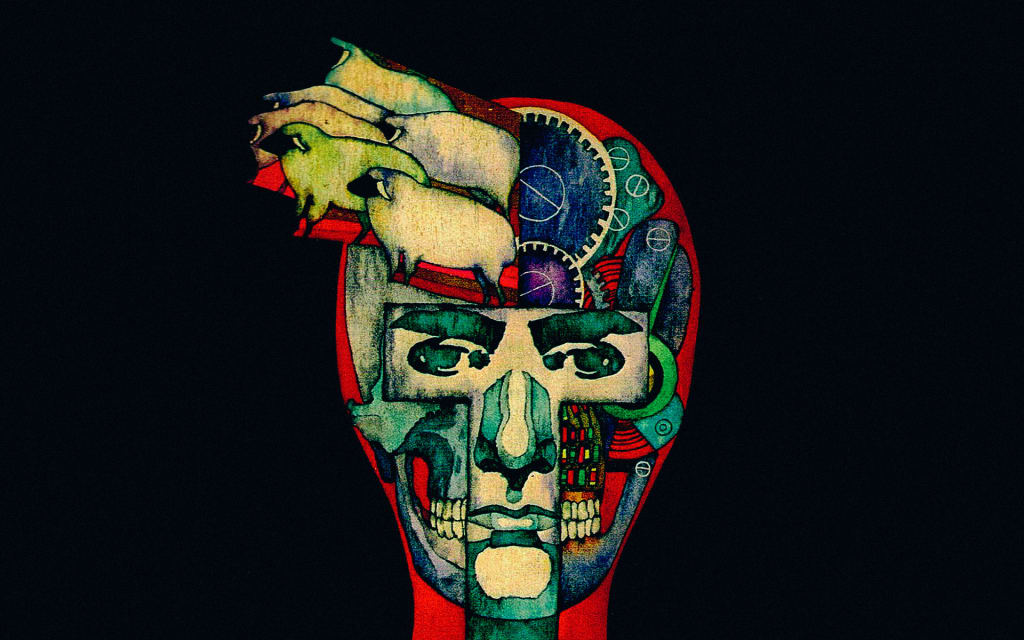Sci-Fi Books that Changed the Genre Forever
Sci-fi books that changed the genre forever are small in number, but hugely influential.

When thinking of sci-fi books that changed the genre forever, there are a number of contexts that need to be considered. Science fiction books have been know to predict the future and speak to the past in a way that few other forms of fiction do. They point out social issues and bring up questions of morality and the human condition. The great ones are the first to do so or to do it in a way that is so wholly unique as to influence that world around them. Great sci-fi novels also inspire the generations after them. Here is a list of sci-fi books that changed the genre forever.
Following the adventures of The Time Traveler, the story starts in Victorian England and follows the traveler as he vaults from 802,701 A.D. to 30 million years into the future. The Time Machine introduced the concept of time travel books to the broader world. It also introduced the time vehicle, or a method of time travel using a vessel designed by science. Exploring themes of class division in the novel, it touched on real world events as sci-fi novels often do. Having introduced one of sci-fi’s main tropes, time travel, it has been turned into three movies, two TV shows, and comics. In the true fashion of any great novel or work of literature, it continues to spark conversation about technology undiscovered.
The War of the Worlds warned people to look to the sky for possible invading martians and was part of the birth of the alien invasion theme of sci-fi. Part of the “invasion literature” craze of the late 1800s, the book has become one of the most revered in the whole of sci-fi. It chronicles the plight of humanity as Earth is invaded by gigantic spider legged robots. The seemingly indestructible war machines tear through Earth’s greatest weapons on a rampage of conquest. Being as all good sci-fi is inspiring and forward thinking, it inspired Robert Goddard to invent the liquid fueled and multi-stage rockets. There have also been multiple movies based on the revered novel and the radio serial narrated by Orson Welles on Halloween of 1938 caused quite a stir. Narrated with news bulletin updates, people around the world thought the Earth was actually being invaded by martians. There was an uproar but it is now regarded as a great event in radio history.
The inspiration for the movie Blade Runner, Do Androids Dream of Electric Sheep? is seen as a forerunner in the genre of cyberpunk sci-fi. Following the warpath of Rick Deckard, a man charged with “retiring” rogue androids, the novel delivers a view of a dystopian and rotting world where owning a live animal is viewed a status symbol. The book explores issues of emotion and empathy as they are related to artificial intelligence and also man’s place to decide what is right and wrong. With the establishment of the cyberpunk aesthetic, a whole new style of sci-fi was born in the form of everyday characters in dystopian surroundings.
In an otherworldly setting, the book follows the journey of Genly Ai, an ambassador from the planet Terra. Representing the Ekumen, a confederation of planets, Genly is tasked with understanding an alien species very foreign to him. Gender identity and loneliness are two of the major themes within the novel. The discussion of “ambisexuals” within the book brought to question the role of gender in society as “ambisexuals” do not have a specific gender. Though at the time controversial, the themes in the book have become mainstays of the current conversation throughout the world.
Sci-fi has a tradition of predicting the direction of technology and Jules Verne’s classic, 20,000 Thousand Leagues Under the Sea does just that. It tells the story of the voyage of Captain Nemo and his fantastic submarine, the Naughtilus. The book theorized of the possibility of underwater vessels and what they would mean for humanity. It also touches on themes of revenge and alienation, with a spiteful Captain Nemo swearing revenge on a surface world that exiled him. Jules Verne was one of the fathers of sci-fi and had many other great books such as Journey to the Center of the Earth and Around the World in 80 Days. His journeys into scientific thought definitely propel his books into any discussion of sci-fi books that changed the genre forever.
Introducing the concept of the matrix, a global wireless computer network that people access directly in their mind, Neuromancer is a novel that looked forward to a future filled with artificial organs and a virtually connected world. As the protagonist, a washed up hacker by the name of Henry Dorsett Case, finds himself cut off from the matrix he is asked to pull off the biggest hack of his life. With themes such as hacking and the ability to enter a virtual world via computer network, Neuromancer was prophetic in the way it incorporated computer technology into its gritty world. A seminal cyberpunk work and great forebearer of where computer technology is headed, it is considered one of the finest sci-fi works of all time.
A commentary on corruption of a communist society, 1984 is considered not only a great work of sci-fi but of overall literature. Popularizing terms such as “Big Brother” and “Orwellian,” the book is a warning against the overreach of government. Readers journey through this dystopian future with Winston Smith, a low level worker at the Ministry of Truth. Resenting the control that is exhibited over the people, Winston follows a rebellious and ultimately futile path. With its warnings of constant government surveillance and cautioning of the dangers of forgetting the past, 1984 is a book that speaks a warning against complacency in the face of authoritarian rule.
Developing many of the concepts of post-apocalyptic fiction that now exist in today’s depiction of a such an event, The Postman is the book that set the trend. A scrappy survivor in a desolate world, traveling through its ruinous landscape. Humanity holding onto false hope in the face of overwhelming adversity. The Postman has them all. Though turned into a movie, the book was not done justice as many of the concepts that made it great were not included. This includes bionically enhanced super humans and false supercomputers. As the world enters an era where bionic enhancement is becoming possible, this book takes a look at the cost of such things.
Written primarily for young adults, The Giver has been turned into a movie and speaks to some very basic human emotions. It speaks to them in such a way as to make people look at the world around them. In a world devoid of color, young Jonas is able to see glimpses of something more. It is for this reason that he is selected to be the new receiver of knowledge. Living in a compartmentalized world where free will is shunned, Jonas becomes more and more disillusioned by his surroundings. A book about free will and perception, The Giver taught a generation of young adults to question the status quo.
I placed this book on here for the sole reason that, as we approach a world where robotics is becoming more and more commonplace, I, Robot established that which is viewed as the three fundamental rules for robot behavior:
- A robot shall never harm a human.
- A robot shall obey all human commands unless they interfere with the first rule.
- A robot shall protect its own survival as long as it does not interfere with rules one and/or two.
Turned into a movie starring Will Smith, it is arguably the foremost book to question how a functional world with robotics would appear. With discussions on the boundaries of a robots capacity to feel and develop empathy, Asimov’s work will be looked to as a litmus test on robotics.
We have come to a point where technology has allowed many things speculated on in the golden age of sci-fi to become reality. From submarines to rockets, sci-fi’s ability to push human ideas and perception cannot be argued. The discussion of sci-fi books that changed the genre will forever continue to evolve as the genre itself does. One thing is guaranteed and that is speculation about futures’ unknown and introspective looks at the human condition have and always will be present in all great sci-fi.
About the Creator
Peter Carriveau
Writer of many things who likes politics, comics, and vintage video games. When not writing, Peter likes spending time with his beautiful partner Angelica, and our two daughters.






Comments
There are no comments for this story
Be the first to respond and start the conversation.